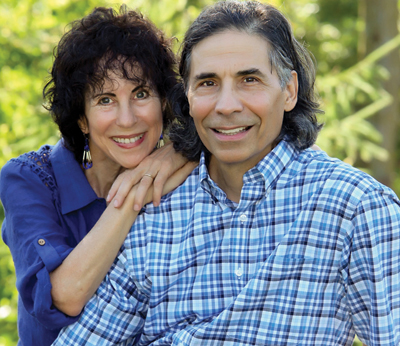
Nervous. Fearful. Wary. Angry. These are feelings that participants commonly report at the beginning of our Better Angels Red/Blue Workshops, which bring together liberals and conservatives to engage over politics. At first, the feeling in the room is somewhat like a Korean DMZ meeting where rival troops are exchanging prisoners. Given the volatility of political discussions these days, their apprehension is understandable.
Within a few hours, however, these same people express warmth and kinship toward those who were so recently their supposed enemies. Typical comments from the participants are:
“I’m not feeling so angry at the other side and estranged from them.”
“I can see and understand their point of view, even though I still disagree.”
“I discovered that we agree on more than we disagree.”
“For the first time in a long while, I’m hopeful.”
It Feels Good To Be Heard
So what happens in these workshops that is so powerful? To understand how this significant shift occurs, consider a time when you’ve been in conflict with someone. Now imagine your opponent giving you space to fully explain yourself while they really listen to understand you. It’s validating and soothing, right? It feels good to be heard. This is what happens in the workshops. Beginning with a willingness to listen and understand, participants learn how to speak in a manner that invites others to listen nondefensively and to listen in a way that invites others to speak respectfully.
For example, one exercise asks each side to list the demeaning terms hurled at them—racist, elitist, greedy, bleeding heart, etc. Both sides then get to explain how they see themselves with respect to these negative labels, while acknowledging whatever truth might be at the basis of them. Another exercise invites participants to speak about how their party’s policies help our country and then share any concerns they may have about their party.
Overcoming Preconceptions
Through exercises such as these, individuals get to see beyond their preconceptions about their political opponents. Often for the first time, participants are hearing members from the other side present themselves in a positive light—instead of the usual inter-party attacks. When each side reveals their honest concerns about their own party, the humility they’ve all expressed serves to soften the hard edges of animosity and pave the way for civil conversation.
In later exercises, participants learn tools for having respectful discussions about political issues, including contentious ones such as gun control, abortion rights, and immigration.
It turns out that listening attentively to opposing opinions is the most challenging of all the exercises—and also the most rewarding. Participants have recognized that they cannot appreciate someone else’s viewpoint so long as they are listening from a debating mindset. But once they switch to receptive listening, they begin to understand one another in new ways. As one participant reported: “I enjoyed stepping out of my projections on the other side to simply listen and find out what they really thought and believed, and to discover I really did not know these people that I was so critical of.”
Granted, to step outside of our preconceptions and listen to another takes a willingness to drop defensiveness and open our mind to other perspectives. But this is how we build harmony amidst our differences, whether in our own relationships, our community, or the nation.
On a national level, the Better Angels movement has been working to build harmony across the political divide by offering Red/Blue Workshops—free of charge—across the country. These workshops are an appeal to the better angels in all of us to remain friends amidst political differences.

Joe and Julie Mandarino are trained Better Angels moderators. If you would like to participate in a local Red/Blue Workshop, contact them at www.JoeAndJulie.com.
